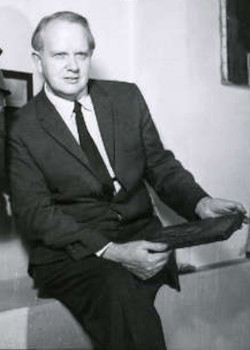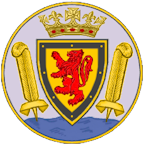Robert Payne
 Pierre
Stephen Robert Payne was born in Saltash on the 4th of December 1911, the
son of an English naval architect and a French mother. He attended St
Paul's, a selective independent school in London, going on to study in
South Africa for three years, at Diocesan College, Rondebosch, and at the
University of Capetown. Returning to England in 1932, he became a
shipwright's apprentice at Cammell Laird's shipyard in Birkenhead, then
continued his studies at the University of Liverpool from 1933 to 1936
before briefly working for the Inland Revenue as an Assistant Inspector of
Taxes in Guildford.
Pierre
Stephen Robert Payne was born in Saltash on the 4th of December 1911, the
son of an English naval architect and a French mother. He attended St
Paul's, a selective independent school in London, going on to study in
South Africa for three years, at Diocesan College, Rondebosch, and at the
University of Capetown. Returning to England in 1932, he became a
shipwright's apprentice at Cammell Laird's shipyard in Birkenhead, then
continued his studies at the University of Liverpool from 1933 to 1936
before briefly working for the Inland Revenue as an Assistant Inspector of
Taxes in Guildford.
Payne was an accomplished linguist, eventually fluent in Chinese, Danish, French, German, Greek, Italian, Latin, Polish, Spanish, and Russian, and in 1936 he translated Yuri Olesha's 'Envy' into English. This was his first published book of more than 100 over the next forty-seven years.
During the summer of 1937 Payne was at the University of Munich, where he met Adolf Hitler through Rudolf Hess, and in 1938 he studied at the Sorbonne (the University of Paris), then covered the Spanish Civil War for a London newspaper before departing for Singapore to visit his father, the civilian head of the British Naval base there.
From 1939 to 1941 Payne was a shipwright at the Singapore Naval Base, then became an armament officer and chief camouflage officer for British Army Intelligence at Singapore. Driven out of Singapore by the Japanese offensive, he was assigned to the British Embassy at Chongqing, working as a translator for the Ministry of Information. In January 1942 he covered the battle of Changsha for the London Times, and later that year he married Rose Hsiung, daughter of Hsiung Hsi-ling, a former premier of China. (This marriage was ended by divorce in 1952.) From 1942 to 1943 he taught English literature at Fudan University's wartime campus, near Chongqing. In 1943, persuaded by Joseph Needham, he went to Kunming and taught English poetry and naval architecture at Lianda University until 1946.
Leaving China, Payne visited India in the summer of 1946, gaining therefrom a lifelong love of Indian art. In the winter of 1946 he took up residence in Los Angeles, living there until 1949 when he became Professor of English and Author-in-Residence at Alabama College, Montevallo. He became a United States citizen in 1953, and moved the following year to New York City, where he lived for the rest of his life.
Throughout his life, Payne retained a love for all forms of oriental art. He was also a voracious reader and book collector. Despite regularly donating to libraries books he had used for various writing projects, his apartment was stacked floor to ceiling with books everywhere – on sofas, on chairs, on tables, and under his bed.
In the 1950s, 60s, and 70s Payne's articles and book reviews appeared regularly in the New York Times Magazine, United Nations World, Saturday Review, and numerous other magazines. Bertha Klausner, Payne's literary agent for more than 35 years, called him "a workaholic who just lived to write." He wrote biographies, essays, film scripts, histories, novellas and novels, operas, plays, poetry, and short stories, but he was best known for his many biographies, which included studies of Adolf Hitler, Albert Schweitzer, Alexander the Great, Charlie Chaplin, Chiang Kai-shek, Fyodor Dostoyevsky, George C Marshall, Greta Garbo, Ivan the Terrible, Joseph Stalin, Karl Marx, Leon Trotsky, Mao Zedong, Mohandas K Gandhi, Sun Yat-sen, Vladimir Lenin, William Shakespeare, and the White Rajahs of Sarawak. Many of his books were highly praised in The New York Times, and a number were Book-of-the-Month Club selections, yet Payne once remarked that "the only two that did well were Lenin and Hitler, and they were the worst of the lot."
Payne usually worked on five to eight books at the same time, but each book took several years to complete, as he would read as much as he could find on each subject, and also make regular expeditions to Asia and Europe, often combining research for his books with visiting his father in England. The actual writing was done at night – starting around 2am every morning he would work for five or six hours at the table where his portable manual typewriter was surrounded by open books, pens, paper clips, loose pages of notes, cigarettes, and packets of chewing gum. Like many authors, he usually insisted on working alone and undisturbed, but in 1981 he married Sheila Lalwani, originally from India, and thereafter he would allow her cat, Ashley Aurangzeb, to curl up on his lap as he wrote.
In February 1983, while on vacation in Bermuda, Robert Payne suffered a stroke and heart attack. He was admitted to King Edward VII Memorial Hospital on the 6th, and died of complications on the 18th.
page updated 2025-03-21
